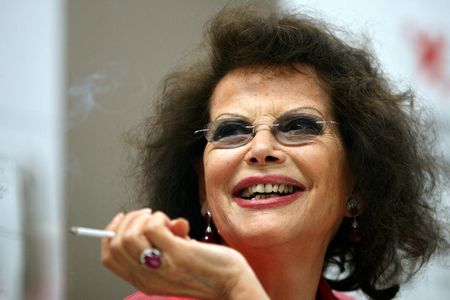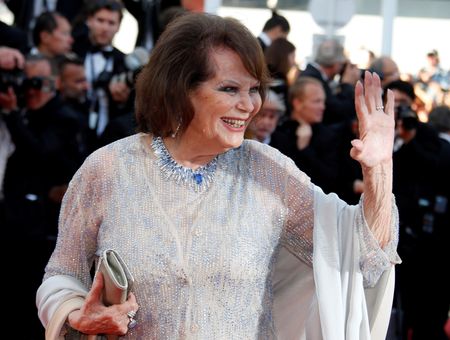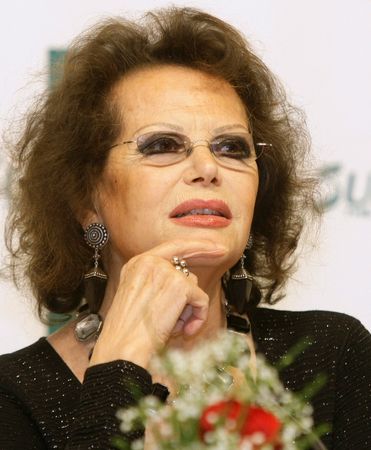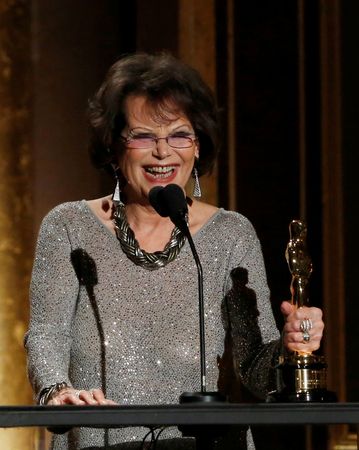ROME (Reuters) -Claudia Cardinale, a glamorous symbol of post-war Italian cinema who enjoyed a long and varied acting career on film and in the theatre, has died at age 87, according to AFP and other French media.
Raised in Tunisia to a family of Sicilian origin, Cardinale’s introduction to the movie world came in 1957 after she won a beauty contest in Tunis and was rewarded with a trip to the Venice film festival.
Her voice had to be dubbed for her first Italian screen roles because she had grown up in a family where Sicilian dialect was spoken and had been educated at a French-speaking school.
Her early career was also complicated by a secret pregnancy which she said was the result of an abusive relationship. She gave birth to a son, Patrick, in London in 1958 and passed him off as a younger brother for several years while he was brought up by her parents.
After a series of smaller roles, she shot to international fame in 1963 when she featured in Federico Fellini’s “8-1/2” while she also starred alongside Burt Lancaster in “The Leopard” in the same year.
Shooting two films at the same time brought complications, with Cardinale recalling that she had to have different hair colours for the two roles.
In an interview with Britain’s Guardian newspaper in 2013, Cardinale contrasted the approaches of directors Fellini and Luchino Visconti, who directed “The Leopard”.
“He (Fellini) couldn’t shoot without noise. With Visconti, the opposite, like doing theatre. We couldn’t say a word. Very serious,” she said.
Her growing profile opened the door to Hollywood productions and she appeared in the comedy caper “The Pink Panther”, directed by Blake Edwards, and Sergio Leone’s “Once Upon A Time In the West” in 1968.
OSTRACISED
Cardinale’s career took a hit in the 1970s, after she separated from film producer Franco Cristaldi to start a life-long relationship with filmmaker Pasquale Squitieri, with whom she had a daughter, also called Claudia.
Angry at being dumped for another man, Cristaldi asked friends and associates in the Italian cinema industry to ostracise Cardinale, resulting for example in Visconti turning her down for his last film, “The Innocent” (1976).
“It was a very delicate moment. I discovered I had no money in my bank account,” Cardinale said about the period.
Franco Zeffirelli eventually came to her rescue, casting her in the 1977 television mini-series “Jesus of Nazareth”. She then continued working with other European directors, including Werner Herzog and Marco Bellocchio.
The husky-voiced, chain-smoking Cardinale had a reputation as a fiercely independent, free-spirited woman, who once defied Vatican protocol by showing up for a meeting with Pope Paul VI in a miniskirt.
A 2022 book celebrating her life was called “Claudia Cardinale. The Indomitable”.
Based for much of the time in France, and friends with presidents Francois Mitterrand and Jacques Chirac, Cardinale turned to the theatre around the turn of this century, winning plaudits for her appearances on the stage.
She carried on making films in a variety of European languages until late in her life, appearing in Swiss TV series Bulle in 2020.
Awarded a lifetime achievement at the Berlin Film Festival back in 2002, she said acting had been a great career.
“I’ve lived more than 150 lives, prostitute, saint, romantic, every kind of woman, and that is marvellous to have this opportunity to change yourself,” she said.
“I’ve worked with the most important directors. They gave me everything.”
(Writing by Keith Weir and Alvise Armellini; Editing by Andrew Heavens)














